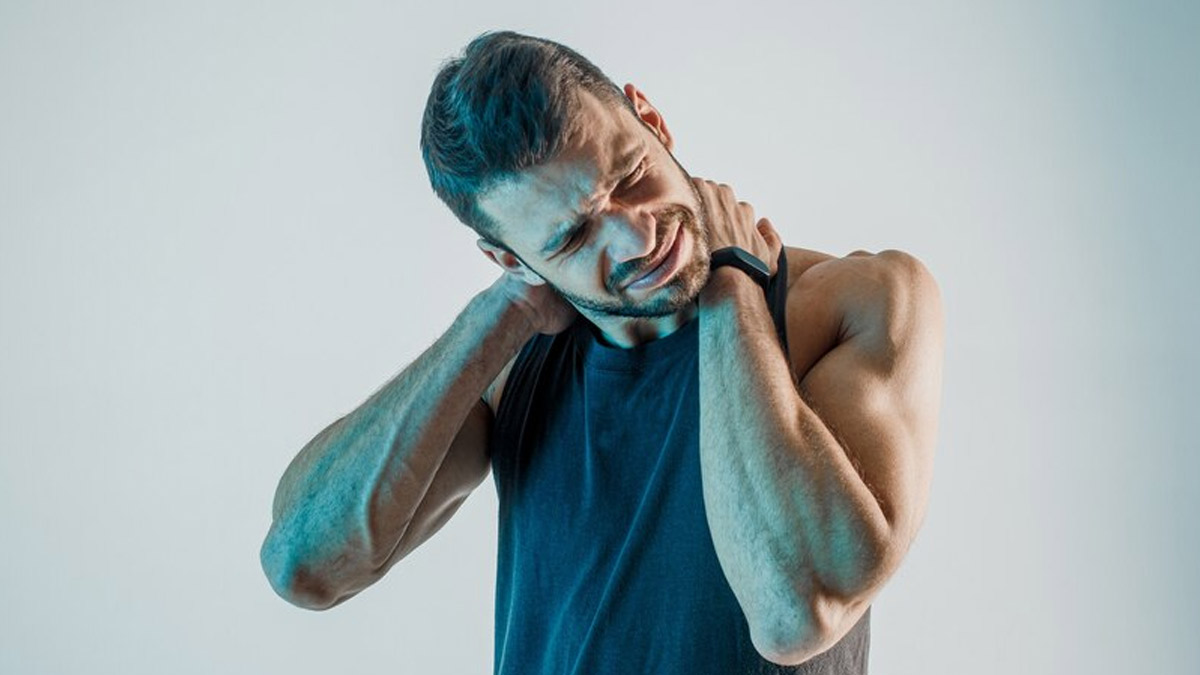
Muscle spasms are sudden, involuntary contractions of one or more muscles. These spasms can be intensely painful and can last from a few seconds to several minutes. They often occur in the legs, but can affect any muscle in the body.
Table of Content:-
To dig deeper into what muscle spasms are and how to treat them, OnlyMyHealth team interacted with Dr Tejashree Etam, Physiotherapist and Healthcare Analyst, Rush Staffing Solutions, Mumbai.
Dr Etam said, “Muscle Spasms are also known as Muscle Cramps. They are involuntary or forceful contractions of a muscle that are uncontrollable and can not relax. Muscle spasms are quite normal and common. They involve part of a muscle group or the whole muscle itself.”
Defining muscle spasm, a study by ScienceDirect stated, “Muscle spasm and consequent pain are common accompaniments of many conditions ranging from direct muscle trauma to neurologic disorder.”

Causes of Muscle Spasm
A lot of factors can lead to muscle spasm which are explained below by Dr Etam.
1. Dehydration
Not drinking enough water can lead to electrolyte imbalances, causing muscles to contract uncontrollably. Minerals such as potassium, calcium, and magnesium are essential for muscle function. An imbalance can trigger spasms.
Also read: Normal Muscle Spasms Can Be Dystonia: Here Are Some Differences To Know
2. Too Much Caffeine
According to a study by the American Journal of Medicine, caffeine can increase the susceptibility of muscle spasms. It also states that the stimulant activity of caffeine can induce muscle contractions.

3. Stress
Stress is one of the major reasons for muscle spasms. According to a study by the Ohio University Wexner Medical Centre, stress and anxiety can cause muscle twitching by releasing neurotransmitters from the nerves supplying the muscles. It further stated, “Anxiety can make you hyperventilate, or breathe faster, which changes the ions concentration and pH in your body, and predisposes you to muscle twitching.”
Adding to the causes of muscle spasms, Dr Etam said, a pinched nerve and side effects of some medications or micro-mineral deficiency can also lead to muscle spasms.
She said, “There is even a neurological condition called as 'Stiff Person Syndrome' (SPS) in which muscle spasms occur involuntarily.”

Treatment
- Dr Etam listed down a few points explaining the treatment of muscle spasms.
- In order to treat or prevent muscle spasms, we need to specifically maintain electrolyte balance in our body.
- Vitamins and minerals like magnesium, potassium, vitamin D, vitamin B complex should be maintained. They have been found particularly effective in minimising the effects of painful muscle cramps.
- Drinking lots of water and even coconut water (it contains lots of potassium) helps in hydrating the body which reduces its occurrence.
- Immediately stop any activity that caused the cramp.
- Using a heating pad or an ice pack to relax the muscle is a must.
- Gentle massage or light stretches of the affected muscle group helps.
- If pain is in the calf muscle, the person can try putting their weight on the affected leg and bending their knee slightly. Doing this will stretch the muscle. Hold for 10 sec and relax. Repeat this for 3-5 times.
- If the cramp occurs in Quadricep muscle (front of thigh), then the person should hold the foot of the affected leg behind them and gently pull up towards the hips, keeping knees together, standing upright. Hold for 10 seconds and relax. Repeat for 3-5 times.
- If muscle spasms occur during exercise then stretching muscles and relaxing them before exercise helps a lot.
In case of a neurological condition, your doctor will prescribe medications for it.
Also read: Eating Right For Muscle Building: Expert Shared Diet Strategies For Gym Goers
Conclusion
Concluding, Dr Etam said, “If muscle spasms are persistent and even after taking above precautions does not help then seeing a physical therapist is necessary so that proper exercises and treatment would be done for strengthening the muscles and improving flexibility and muscle tone.”
Also watch this video
How we keep this article up to date:
We work with experts and keep a close eye on the latest in health and wellness. Whenever there is a new research or helpful information, we update our articles with accurate and useful advice.
Current Version